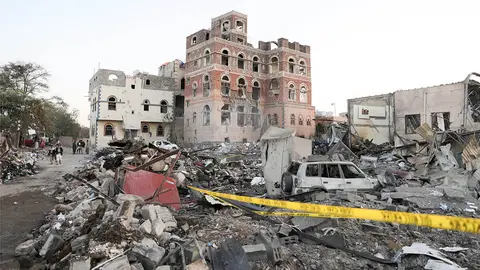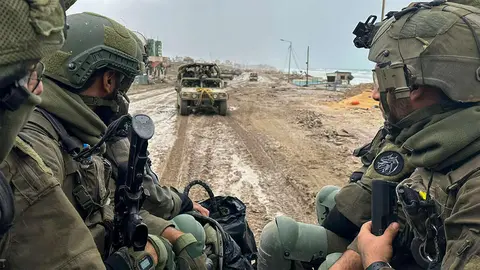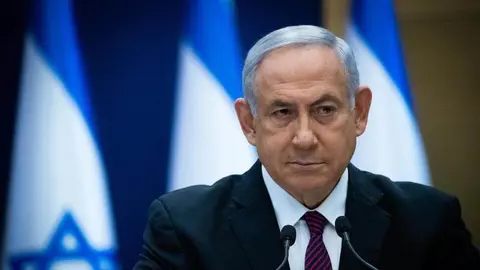Israel's incursion into Gaza sparks division in the country
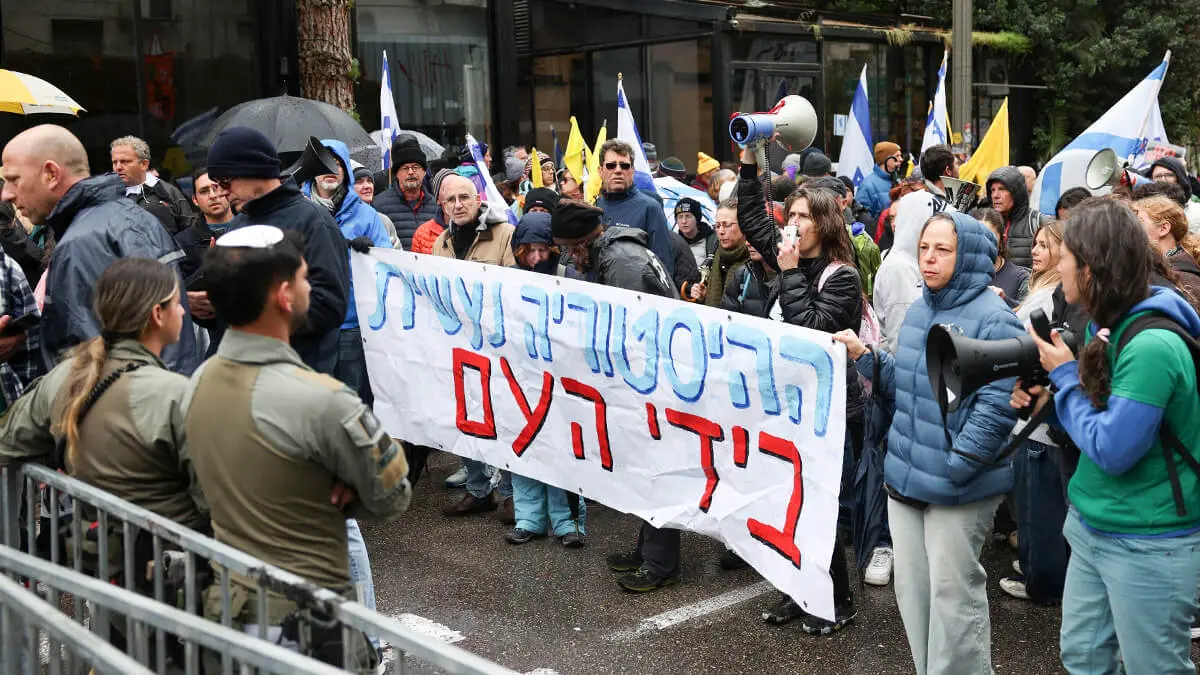
Israel has once again launched a military offensive in Gaza by land.
All this is taking place in the midst of strong opposition in the country.
There is growing opposition to Prime Minister Benjamin Netanyahu in the country and in some unusual statements, Israeli President Isaac Herzog said that ‘it is unthinkable to resume fighting while we continue with the sacred mission of bringing our hostages home’.
In the meanwhile, Hamas launched rockets on Tel Aviv, in its first military response to Israel’s resumption of aerial bombardment and ground operations in Gaza this week. But analysts say its options are limited in view of the attrition it has suffered within its ranks and the changed regional landscape.
This week’s strikes have killed some of Hamas’ top figures, including the de facto Hamas-appointed head of the Gaza government, the chief of security services, his aide, and the deputy head of the Hamas-run justice ministry. Israel’s military also said an air strike had “in recent days” killed Rashid Jahjouh, the head of Hamas’s internal security agency.
The Israeli offensive has drawn widespread condemnation. But Netanyahu seems buoyed by Washington’s continued backing. US President Donald Trump “fully supports” Israel’s renewed Gaza operations, White House Press Secretary Karoline Leavitt told reporters when asked if he was trying to get a Gaza ceasefire back on track.
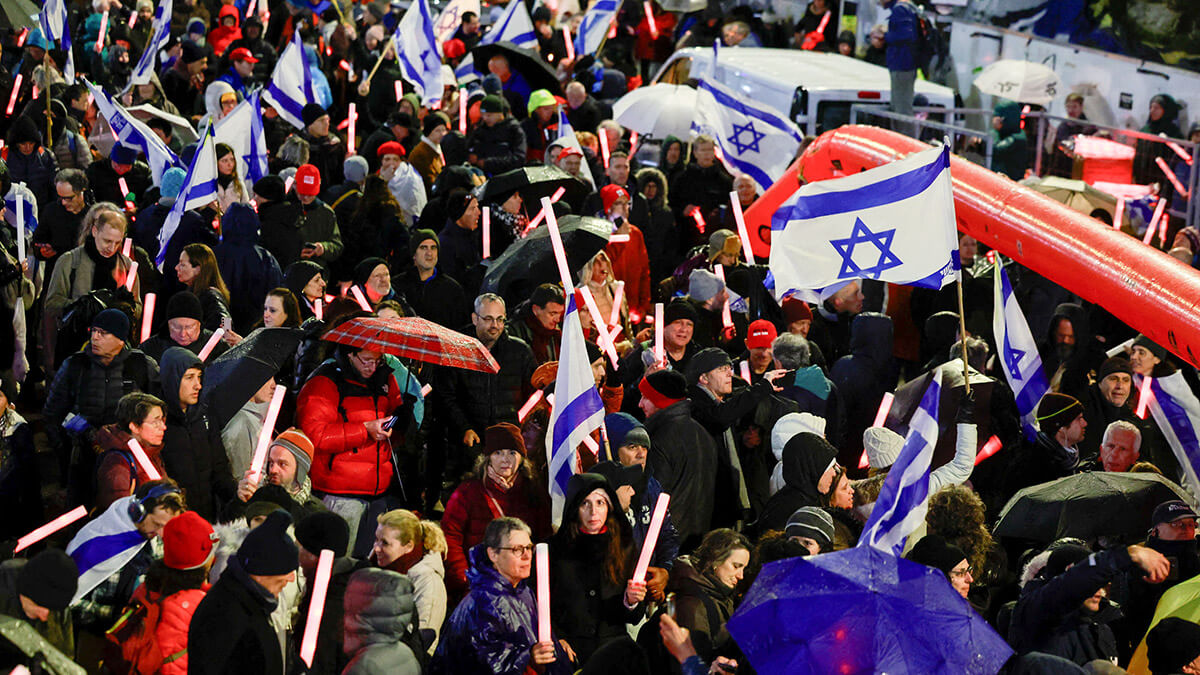
The Israeli premier seemed busy cementing his hold on power. Early Friday, the head of Shin Bet — Israel’s domestic intelligence agency — was sacked, days after Netanyahu said he no longer trusted him. The resumption of military strikes earned him a political boost when former national security minister Itamar Ben-Gvir rejoined the coalition. Netanyahu was left with only a thin parliamentary majority following his departure in January over disagreements about the ceasefire.
The military escalation in Gaza has coincided with a reignited protest movement by Israelis who see Netanyahu’s policies as a threat to democracy. For Israel, a return to full-blown war could prove complicated, some current and former Israeli officials say, amid waning public support and burnout among military reservists.
Israel’s President Isaac Herzog on Thursday expressed concern over steps being taken by the government.
“It is impossible not to be deeply troubled by the harsh reality unfolding before our eyes,” Herzog said in a video statement.
“It is unthinkable to resume fighting while still pursuing the sacred mission of bringing our hostages home,” added Herzog, whose role is largely ceremonial.
He said the prime minister was “advancing divisive and controversial initiatives that create deep rifts within our nation”.
Protesters accuse Netanyahu of continuing the war for political reasons and endangering the lives of remaining hostages.
After multiple months-long deployments, some reservists are also reluctant to return to Gaza. Military leaders acknowledge that burnout has been an issue among reservists. Any major ground offensive is expected to involve reserve forces, although it may not require as many as at the start of the war. More than 400 Israeli soldiers have been killed and thousands wounded in Gaza combat.
Ynet, a mainstream Israeli news outlet, and the left-leaning Haaretz newspaper reported this month that the number of reservists showing up when called has dropped to as low as 60% in some units. The IDF did not comment.
Recent opinion polls suggest that most people in Israel want to continue negotiations for a deal that would end the war, release all remaining hostages in exchange for Palestinian prisoners and see a complete withdrawal of Israeli forces. The prime minister appears increasingly out of touch with public sentiment, fracturing the broad consensus that has underpinned Israel’s war, said Amotz Asa-El, a political analyst with the Shalom Hartman Institute in Jerusalem.
The Gazans’ desperate exodus was again in full motion. Palestinians were seen fleeing south along a section of Salaheddin Road still open, near central Gaza’s Nuseirat refugee camp, atop donkey-drawn carts piled high with belongings.
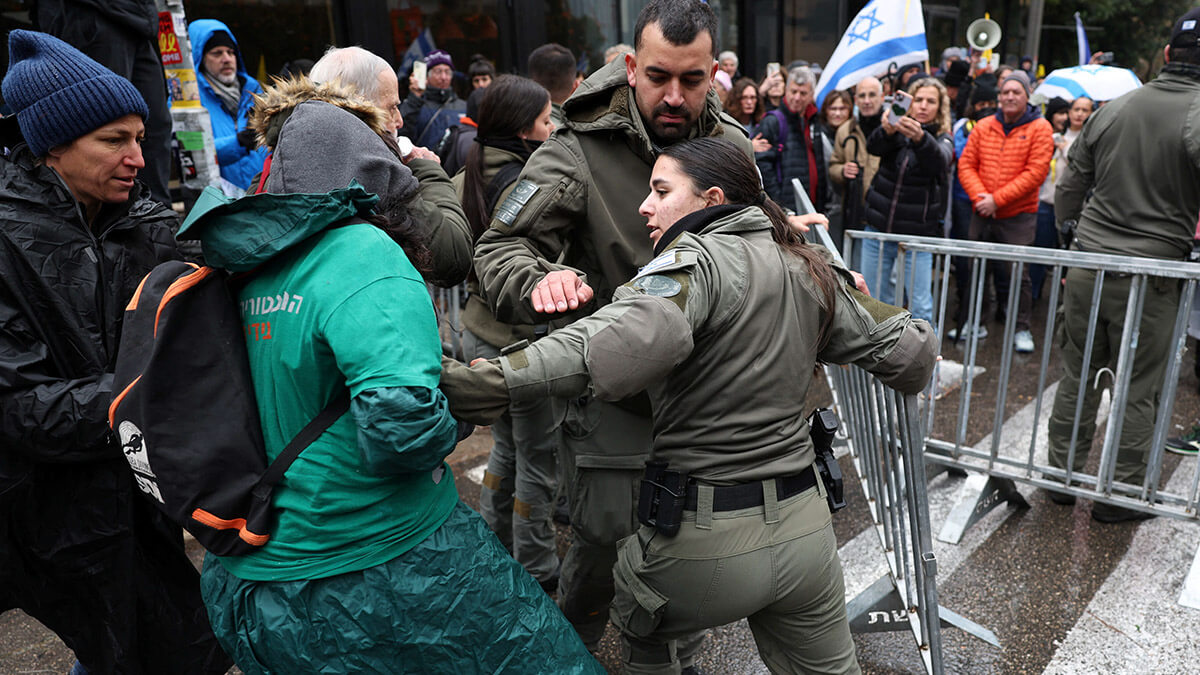
Israel earlier said it had closed off the territory’s main north-south route as part of expanding ground operations that resumed on Wednesday.
Military spokesman Avichay Adraee said on X that Israeli troops “have begun a targeted ground operation in the central and southern Gaza Strip in order to expand the security zone between the northern and southern parts”.
Israeli officials told Reuters that Netanyahu has approved a plan for a wide-scale operation that includes the option to send in more ground troops. Lieutenant Colonel Nadav Shoshani, a military spokesperson, said on Wednesda, “All options are on the table.”
Gaza’s civil defence agency said 504 Palestinians had been killed since Tuesday, including more than 190 minors.
More than 49,000 people have been killed in the enclave, according to Palestinian health authorities, killed.
But the group remains deeply entrenched in Gaza and still holds 59 of the 251 hostages who were seized on October 7, 2023. The attack claimed the lives of some 1,200 people in southern Israel.

